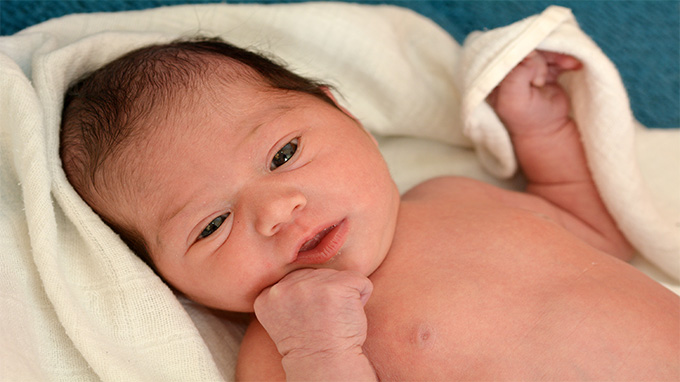Early symptoms of gastric cancer
How to identify the early symptoms of gastric cancer
Most patients have deep tenderness or no performance in the upper abdomen except for the general systemic condition. Upper abdominal discomfort is the most common initial symptom in gastric cancer. About 80% of patients have this symptom, which is similar to indigestion.
Dyspepsia is also characterized by bloating, easy to be full, acid reflux, belching, nausea, vomiting, and nausea. It usually occurs after a meal. It is generally mild and has no regularity. Most of them do not attract attention and attention. It is also often seen as indigestion, chronic gastritis or peptic ulcer when you go to a doctor. In addition, the patient''s suspicion and contempt for various examinations, and buy some stomach medicine on their own, the symptoms disappeared and they are considered cured.
Early gastric cancer does not have specific clinical symptoms, the most common symptom is upper abdominal discomfort , Such as mild stomach pain, swelling and heavy feeling, and sometimes pain in the heart fossa, often diagnosed with gastritis or ulcer disease at first, and the symptoms may be temporarily relieved.
If the lesion occurs in the gastric antrum, it will cause duodenal dysfunction and rhythmic upper abdominal pain, similar to ulcer symptoms. According to the treatment of ulcer disease, most symptoms will disappear at first. If gastroscopy is not performed, it is often considered cured, delaying diagnosis and treatment.
Therefore, anyone who has symptoms of upper abdominal discomfort, accompanied by high risk factors, or repeatedly issued to the author after treatment, must be vigilant and do further inspections to find out early and treat early.
1. Other manifestations of early gastric cancer
Unexplained weight loss, fatigue, and lack of energy are also a common and lack of specific signs of gastric cancer, and it is progressively increasing. Some are secondary to dyspepsia, and patients automatically limit their daily diet due to bloating and belching after eating, resulting in weight loss and weight loss and fatigue.
nausea and vomiting can also lose nutrition, leading to malnutrition and aggravating the symptoms of weight loss and fatigue. The weight loss and fatigue in the advanced gastric cancer is more obvious.
2. Early gastric cancer and dyspepsia
Anorexia, anorexia, nausea and vomiting, bloating after eating, belching, acid reflux and other indigestion symptoms are a group of common and It also lacks specific early signals for gastric cancer.
Loss of appetite may be an early symptom of gastric cancer, and it is not accompanied by symptoms of stomach pain. It should be paid more attention to if symptoms of gastric pain occur simultaneously and hepatitis can be ruled out. Some patients automatically limit their daily diet due to bloating and belching after eating, resulting in weight loss and weight loss and fatigue.
Early symptoms of gastric cancer can also appear to be full after eating and accompanied by mild nausea. Tumors in the cardia can begin to have irregular eating, difficulty swallowing, and food reflux. Stomach cancer further develops and vomiting may occur due to pyloric obstruction.
The above symptoms are easily misdiagnosed as functional dyspepsia, so you should seek medical treatment as soon as possible and receive gastroscopy and other examinations in order to detect gastric cancer at an early stage.
3. Early gastric cancer and upper gastrointestinal bleeding
A small portion of early gastric cancer can be manifested as mild upper gastrointestinal bleeding symptoms, that is, black stool or persistent stool positive blood. It is more common in polyp-like and ulcer-like early gastric cancer, which is caused by erosion of the surface of the lesion or cancer encroaching on the capillaries, causing a long-term small amount of bleeding.
Early gastric cancer can also be found in various subtypes of early gastric cancer with relatively flat lesions. Its characteristic is that it is not easy to be controlled by drug treatment.
All elderly people who have no stomach problems should be more alert to the possibility of gastric cancer once they appear black. If the stool is tarry, the stool occult blood test continues to be positive, especially if it is not easy to disappear after general dietary control or taking stomach medicine, it is an important early gastric cancer warning symptom.
Therefore, those who have gastrointestinal bleeding, such as hematemesis, black stools, and fecal occult blood positive, must go to a qualified hospital for gastroscopy in time to clarify the cause of bleeding and understand the possibility of gastric cancer .
Related Articles

- What are the symptoms of Crohn's disease?
- 2020-12-17

- Teach you a few tricks to deal with your child's jaundice
- In the clinic, we found that half of the newborn babies will become yellow (60% full term infants, 80% premature infants). Such children are usually diagnosed as neonatal jaundice. The reas
- 2020-08-02

- Why Chinese mothers breastfeeding rate is not high
- Today, the proportion of Chinese mothers who breastfeed exclusively is not high. Information shows that the proportion of Chinese mothers who are "breastfeeding" is 52.4%; followed
- 2020-08-02

- Breastfeeding children are more adaptable to the outside world
- Breastfeeding has many benefits. The latest research shows that breastfeeding children are more adaptable to the outside world. Studies have shown that breastfeeding children aged 0 to 1 y
- 2020-08-02

- Breastfeeding is good for mothers
- Everyone knows the benefits of breastfeeding, and has repeatedly emphasized that 4-6 months of exclusive breastfeeding is enough. However, according to surveys, breastfeeding rates in China
- 2020-08-02

- Baby grow up, how to add food supplement
- Xiaobao is 7 months old. The baby''s grandma said that it is time to add supplementary food to the baby. This morning, Grandma carefully steamed the eggs for her grandson. She told
- 2020-08-01
